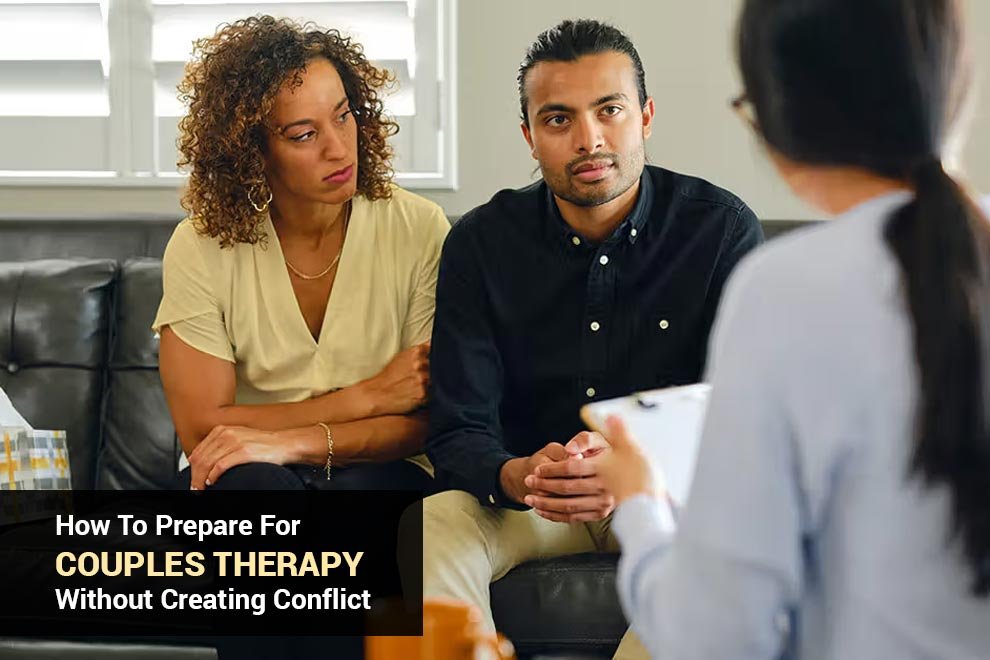Couples therapy may be a significant process that helps to enhance communication, overcome the same problems, and intensify emotional bonding. Nevertheless, reaching a decision to start therapy can be accompanied by anxiety or unpredictability, in case one or both partners are afraid that it may lead to quarrels. Considerable preparation of a couples therapy will go a long way in alleviating such fears and making the process begin with the right productive and respectful tone. And with some preparation and understanding, couples walk in the first session in agreement instead of being defensive.
The manner through which couples join therapy tends to define the experience. By thinking of therapy as a means of growth and support, instead of dwelling on the things that are not working, one is in a position to become a better person and experience the support that is required. Portraying it as an obligation to make the relationship better and not a case of placing the blame, will make both the persons feel less under fire and more open. Such orientation will promote the process of cooperation that is essential to realizing long-term development in couples counseling.
Understanding Shared Goals
It can be beneficial that each partner thinks ahead of time what he or she would like to achieve before starting therapy. Such reflections can consist of emotional drives, communication objectives or certain issues they wish to resolve. By showing these in the first session, the therapist will get a better idea of the pattern of relationship and what the two individuals are concerned with. In case that is possible, partners may discuss the aims with each other shortly prior in a relaxed environment.
It is a good way to do this conversation before the start of the session and avoid the exchange of surprises. As opposed to saving the frustrations until the therapy room, a short and respectful pre-discussion is an opportunity for every individual to feel the need to be heard. The purpose is not to find the solutions to the issues prior to therapy, but come to some agreement of direction.
Choosing The Right Timing
It may be useful to choose the appropriate time to initiate the therapy when other stressful incidents are not coupled with it such as a move, job-change, or family crisis. Although therapy is good in challenging situations, introducing it at the point when the relationship feels strained already may create even more levels of tension. In case this cannot be avoided in the first place, it can assist the structuring of the sessions much sooner by acknowledging it with the therapist.
About approaching therapy when both parties are emotionally prepared to be a part of the process, it may prove significant. When an individual partner is showing signs of resistance or being unconvinced, focusing on the time to discuss this fact helps them not run into a roadblock during the session. Pre-verbal communication concerning the expectations of therapy will minimize the chances of conflict arising when it is time to raise a sensitive issue.
Supporting Each Other
One party may have been the initiator of the therapy, but both the individuals should take the process equally meaningful. It can be a mile to recognize how difficult it is to make an appearance and speak open heartedly. Regardless of whether the session can occur in the clinic or the therapy Toronto clinic, the support between the couple can force both spouses to be dedicated to the work.
It also means being an encouraging partner which would be inclusive of minor steps of improvement being celebrated. A single quiet talk or even a moment of understanding is to note. As couples get ready to go to therapy together with a kind of partnership in mind, chances of getting successful in the process and getting closer as time progresses are high.
Being Honest And Open
The treatment is based on honesty, even in the case when it is hard to say the truth. The readiness to talk freely and at the same time listen with patience is one of the ways of building trust between the two partners as well as the therapist. Before the initial meeting, a good way of going about it can be to have an agreement that each of the individuals will strive to communicate clearly without being hurtful. This agreement between the two assists in a respectful tone on the sessions.
Accordingly, it helps to relax the necessity to win arguments in therapy. The therapist does not need to take sides; he/she should make the two individuals comprehend each other better. This information can be presented in advance with no pressure the patient should feel that he or she needs to convince the therapist about a specific opinion. The actual process of therapy can commence when both partners agree to be truthful without being confrontative.
Also Read: What is Infertility? Understanding the Causes of Infertility in Men & Women










